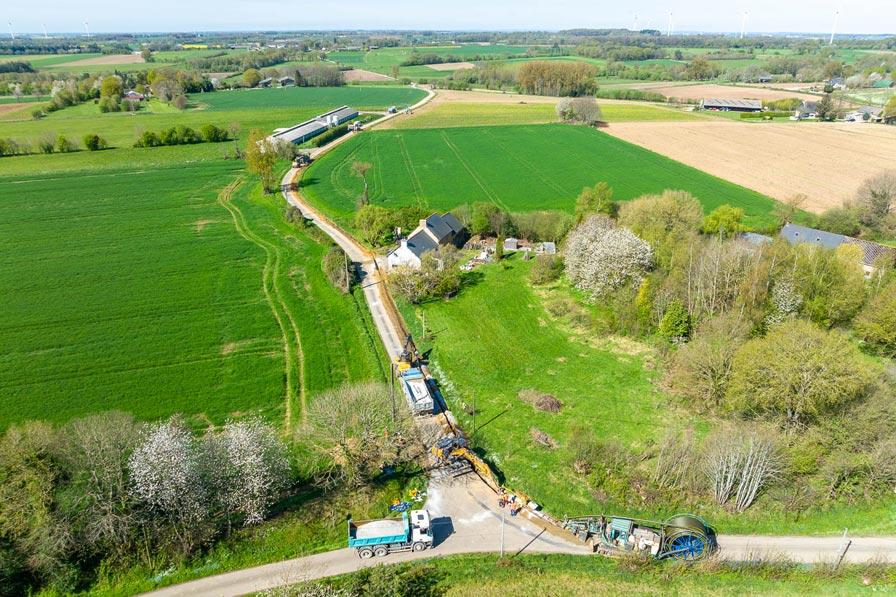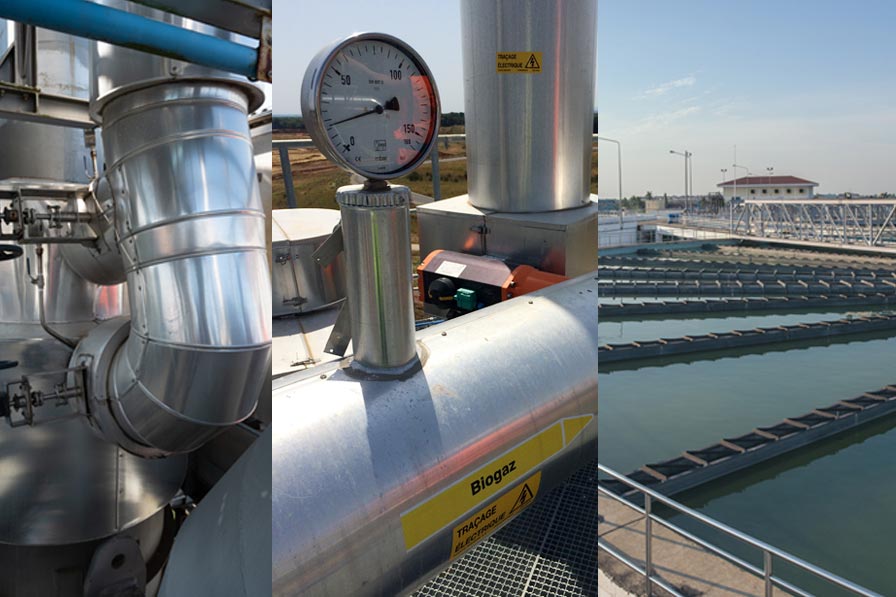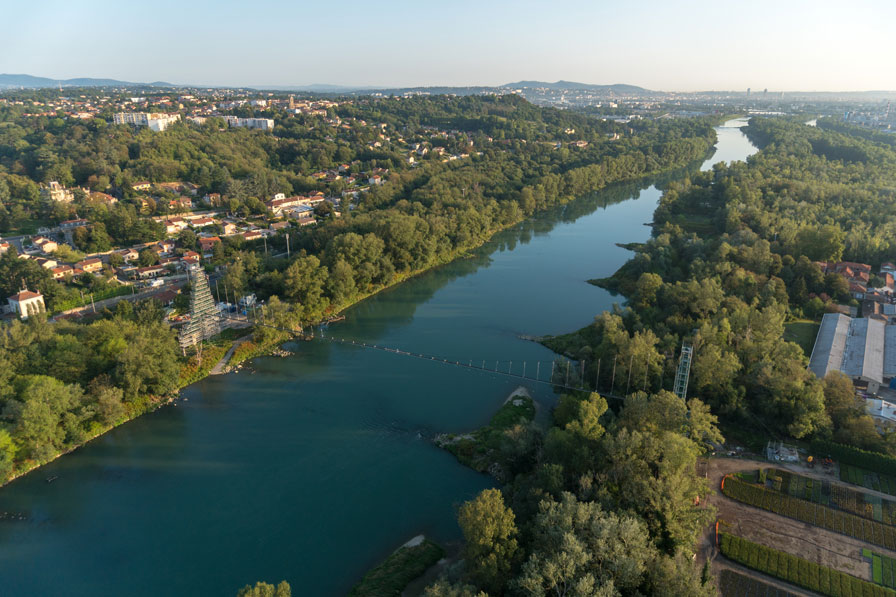Anaerobic digestion: GRTgaz innovates to connect farm-based biogas projects

Between 2020 and 2022, GRTgaz produced a new offer for farm-based anaerobic digestion operations in the commune of Loudéac (22). The following review demonstrates the agility employed to effectively support these new anaerobic digestion projects with a positive impact on the energy transition.
How did the project take shape?
In 2019, several anaerobic digestion projects began to emerge in the area around Loudéac in Brittany – a region with low gas consumption and a relatively smaller gas network. At the end of 2019, when France’s Right to Injection came into force, GRTgaz and GRDF (the country’s leading transmission and distribution network operators, respectively) got together to consider solutions to connect these facilities to the gas network. These discussions gave rise to an innovative project: to transform GRTgaz’s high-pressure network (traditionally 67.7 bar) into a medium-pressure network (10 bar), making it easier and cheaper to connect these farm-based operations seeking to be part of the energy transition.
“To make the local connection of these new anaerobic digestions projects economically viable, we opted to seek them out with medium-pressure rather than high-pressure networks”Noela Vazquez
GRTgaz Gas System Department Project Manager
What does this project involve?
Transforming a network from high to medium pressure was a first for GRTgaz. At the same time, it came up with a connection offer involving pooled structures as a way to share producers’ costs. For project owners, there are only upsides to this system: they enjoy controlled connection costs that allow for new extensions spanning several kilometres, while benefiting from a significant injection capacity (networks in Loudéac and those in Plémet could potentially have access to a reverse flow station if the quantities of biomethane produced and consumed require it). Eventually, the various anaerobic digestion projects in the Loudéac zone will account for 200 GWh per year in the transmission network, i.e. the equivalent annual consumption of the city of Loudéac.
Technical innovation: lowering the network pressure
By opting to transform its network to medium pressure, GRTgaz was able to connect an initial project owner using polyethylene pipes instead the steel pipes required for high-pressure networks, which are only accessible for project two or three times the size. “Polyethylene connections are ten times cheaper,” explains Noela Vazquez, Gas System Department Project Manager. “This means we can seek out projects located further away, and encourage the formation of local project groups that benefit from the same connection.”
Economic innovation: sharing costs
“We were able to reach new target groups by addressing “farm-level” projects rather than municipal projects,” highlights Romain Verles, Commercial Developer in the GRTgaz Commercial Department. “Our new cost-sharing offer aimed at project owners was developed with this is mind.” Until that point, farm operations had to pay for their own connection, which could subsequently benefit other project owners. However, this new cost sharing system “is a first for GRTgaz,” states Romain Verles. This is a “competitive, fair connection” offer for farmers, as the first one on board does not end up paying for the others. Each pays a share that is commensurate with their needs.
Did you know?
By seeking out “farm-based” projects, GRTgaz is following the recommendations of the 2021 senatorial report that argues for a French anaerobic digestion model involving “agricultural-scale rather than industrial-scale biogas producers”. This is a significant factor in reaching France’s energy transition goals.
Key dates for the project
- June 2020: The French Energy Regulatory Commission (CRE) approves GRTgaz’s zoning
- August 2021: GRTgaz signs the first connection and injection contract with Le Breil Sablé
- August 2022: completion of connection works
- Early 2023: commissioning of the first connection with Le Breil Sablé
What are the next steps?
The commercial teams are in contact with around ten project owners to carry out preliminary studies aimed at future connections. Cost difficulties remain a significant issue for these farm-based projects, and GRTgaz has launched a study with the Loudéac Joint Local Authority to “map stakeholders interested in anaerobic digestion and identify solutions to make projects economically viable, potentially by grouping projects or via closer involvement with the network under construction.” For now, this technical, innovative project remains a practical demonstration of GRTgaz’s desire to take positive steps towards the energy transition, while proving its agility and adaptability in supporting these new anaerobic digestion projects.

